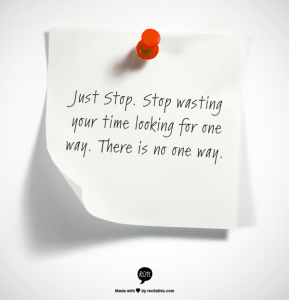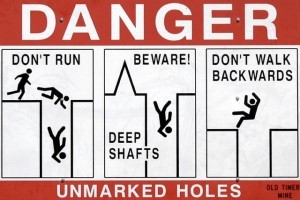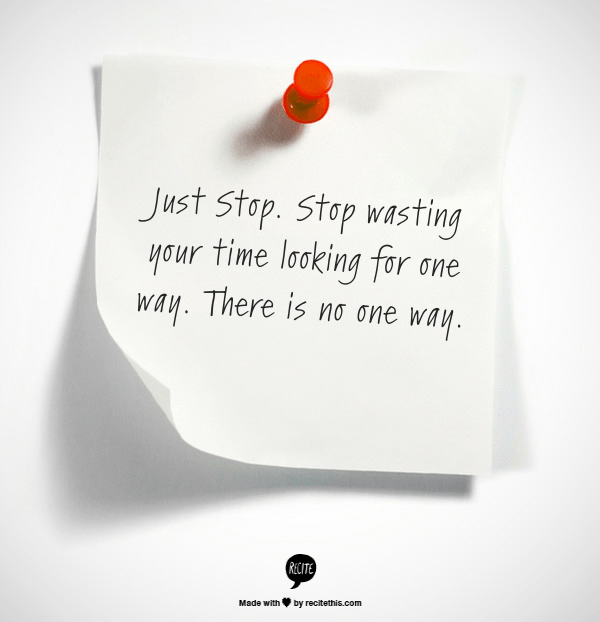Lately I have been in search of the one way to do things.
Not necessarily related items, but the common question people are asking is how to do these things. As in, what are the exact steps to follow?
I am glad to help if I can, but today I am asking myself should I be solve problems for my peers in ways that I would rarely do for my students?When in doubt, I draw on my most powerful experiences, teaching and learning myself.
One experience which remains crystal clear years after it happened is in the early 2000s when I taught four sections of 7th grade math. I was working out of the Connected Mathematics Project (CMP) which stretched me for mathematical thinking and written mathematical expression. I had one co-taught class of both special education and general education students; the general education students also contained what would be advanced and or gifted students in other settings. Students were encouraged to explore differing ways to solve problems throughout the curriculum and I was able to predict most ways the problems could be solved before the students attempted them and from their explanations just mentally recognized/categorize the variations of the set ways to arrive at the solution I had already identified. In this co-taught class I tried to mix the seating often to encourage new partnerships/groupings among the students and the co-teacher worked to pull out a variety of students, never just the ones on his special education roster for daily class exercises. One day my co-teacher sent a pair of students to explain their answer to me and I soon learned why. I asked them to repeat it numerous times and then asked them to draw it out. I had no idea why how their approach to the problem worked, but it did. My co-teacher and I joked about it at the end of the period, but it made sense that one of the smartest kids in the class would pair up with a special education student and they would come up with such a divergent way to solve a routine problem. These two were experienced in thinking their way around things – whether out of boredom or necessity – these were truly divergent thinkers. If we had just told them the one boring way we did it they would never have been engaged, never would have gotten to stump a couple of teachers, and might not have discovered a mutual joy in thinking outside the box. The best thing I did as a teacher for those students that day was get out of their way and honor their solution.
I do not think educators really want to teach only ‘one way’ and forego students opportunities to explore. I do think educators are pressed by their supervisors to do more work, or the same work with diminishing resources like time, funding, respect.
Sometimes teachers might put out only ‘one way’ to solve problems because teachers find it easier to do the thinking for their students and just give them the ‘one way’ so they can move on. I think we all know that no one would find much joy in that type of teaching, so why does it even happen?
 Maybe it is time to point out that we are not working around abandoned mine shafts, really what is the worst thing that would happen if you push back a little bit and insist on allowing your students time to explore the content?
Maybe it is time to point out that we are not working around abandoned mine shafts, really what is the worst thing that would happen if you push back a little bit and insist on allowing your students time to explore the content?
- Could you also extend that philosophy to your professional development and make sure you are pursuing opportunities which enrich your ongoing career instead of simply following the professional developers at your building if they dangle the re-certification credits you need (see: Professional Development Insecurity).
- Could you extend that philosophy to your instructional strategies and test out technologies for the best practices which work best for you classroom?
- Could you articulate how you want something from your building leader(s) instead of waiting for them to tell you how to accomplish things?
- Could you ask parents which way they would like to (anything) instead of telling them how you have always done it?
There is no way you should try all of those, but surely you can try one. Try pushing back a little for one thing that would make a big difference for your classroom. What is the worst thing that could happen?
When you make room for that kind of exploration in your classroom you will need to become more flexible and ultimately more questioning yourself.
I know each classroom has differing needs. I plan on continuing to offer a minimum of one way to do things, but I hope people start trying things the way in which works best for their class and starts asking some “what if” questions. I want to support teachers pushing back for the right reasons. I want to be inspired by teachers challenging me to find new ways to accomplish the same things.
It is a hard time of year, but it is also a good time of year to identify your nonnegotiable and plan how you can establish those early and often this year.
What do you think?






Leave a Reply